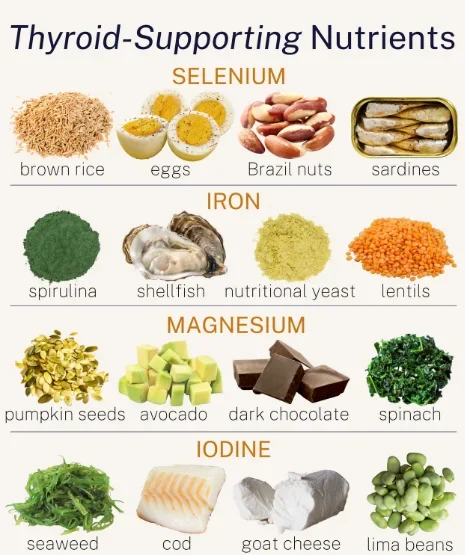Discover the symptoms, causes, and treatments of thyroid imbalance in women. Learn how to manage thyroid health with medical and lifestyle approaches.
Introduction
The thyroid gland is a small, butterfly-shaped organ located in the front of the neck, just below the Adam’s apple. Though small in size, it has an enormous impact on the body because it produces hormones that regulate metabolism, energy levels, heart rate, temperature, and even reproductive health. When the thyroid is not functioning properly, hormone production is disrupted, leading to what is known as thyroid imbalance.
Women are significantly more likely than men to develop thyroid disorders. Conditions such as hypothyroidism (underactive thyroid) and hyperthyroidism (overactive thyroid) affect millions of women worldwide, particularly during times of hormonal shifts like pregnancy, postpartum, and menopause. Because symptoms often overlap with stress, aging, or other conditions, thyroid imbalance is frequently overlooked. A deeper understanding of its signs, causes, and treatments can help women protect their health and improve their quality of life.
Common Mistakes or Misconceptions
Many women struggle for years without proper diagnosis because of common misunderstandings. Some of these include:
-
Mistaking symptoms for stress or aging: Fatigue, weight gain, or thinning hair are often dismissed as normal parts of a busy lifestyle or growing older, when in fact they may signal thyroid dysfunction.
-
Believing thyroid disorders are rare: In reality, thyroid imbalance is very common. According to medical studies, one in eight women will develop a thyroid disorder during her lifetime.
-
Relying solely on self-diagnosis: Online resources can help raise awareness, but relying on them instead of consulting a doctor delays treatment.
-
Ignoring subtle signs: Symptoms such as brittle nails, irregular periods, or changes in bowel habits might seem unrelated, but they can all stem from thyroid imbalance.
-
Assuming medication alone is enough: While medical treatment is crucial, lifestyle choices like nutrition, exercise, and stress management play an equally important role.
Examples / Real-Life Scenarios
To illustrate the impact of thyroid imbalance, consider these common scenarios:
-
Case 1: The unexplained fatigue. A working mother constantly feels tired, even after 8 hours of sleep. She blames stress and household responsibilities, but a thyroid function test reveals hypothyroidism. Once treated, her energy levels improve dramatically.
-
Case 2: The weight struggle. A young woman maintains a healthy diet and works out regularly, but she gains weight instead of losing it. Blood tests show her thyroid is underactive, slowing her metabolism.
-
Case 3: Mood swings misdiagnosed as depression. Another woman experiences constant irritability, sadness, and anxiety. She is prescribed antidepressants, but her symptoms persist. Later, it turns out hyperthyroidism was the underlying cause of her mood fluctuations.
-
Case 4: Fertility challenges. A woman trying to conceive struggles for years without success. When her thyroid function is tested, an imbalance is identified as a key factor affecting her ovulation and menstrual cycle.
These examples show how critical it is to recognize thyroid imbalance early instead of attributing symptoms to lifestyle or mental health alone.
Actionable Solutions / Treatments
1. Medical Treatments
-
Hypothyroidism (Underactive thyroid): Typically managed with a synthetic hormone called levothyroxine. This medication restores hormone levels, relieves fatigue, and normalizes metabolism.
-
Hyperthyroidism (Overactive thyroid): Treatments may include antithyroid medications (methimazole, propylthiouracil), radioactive iodine therapy to reduce hormone production, or thyroid surgery in severe cases.
-
Regular monitoring: Blood tests (TSH, T3, and T4) are essential to ensure treatments remain effective and hormone levels stay balanced.
2. Nutrition and Diet
Diet has a strong influence on thyroid health:
-
Iodine: Essential for hormone production. Sources include iodized salt, seaweed, and fish.
-
Selenium: Supports enzyme activity in the thyroid. Found in Brazil nuts, tuna, and sunflower seeds.
-
Zinc: Helps regulate hormone production. Sources include legumes, pumpkin seeds, and lean meats.
-
Avoiding goitrogens in excess: Foods like raw cabbage, broccoli, and soy can interfere with thyroid function if consumed excessively without cooking.
-
Limiting processed foods and sugars: These can worsen inflammation and make symptoms harder to control.
3. Lifestyle Adjustments
-
Managing stress: Chronic stress disrupts hormone production. Stress-relieving techniques like yoga, meditation, or journaling help restore balance.
-
Regular exercise: Light to moderate physical activity boosts metabolism, reduces fatigue, and supports mental health.
-
Prioritizing sleep: A consistent sleep routine supports hormone regulation and improves mood and energy.
-
Reducing exposure to toxins: Endocrine disruptors in plastics, pesticides, and certain cosmetics can negatively affect thyroid function.
4. Holistic and Supportive Approaches
-
Herbal remedies: Herbs like ashwagandha may help support thyroid function, though they should only be used with medical guidance.
-
Supplements: Vitamin D, omega-3 fatty acids, and probiotics may support overall endocrine health.
-
Mind-body therapies: Practices like tai chi, acupuncture, and mindfulness meditation can ease symptoms such as fatigue and mood swings.
Benefits / Importance
Addressing thyroid imbalance offers a range of benefits for women’s health:
-
Restored energy levels: Fatigue often decreases once thyroid hormones stabilize.
-
Weight management: Proper treatment helps normalize metabolism.
-
Improved mood and mental clarity: Reduced brain fog, anxiety, and irritability.
-
Better reproductive health: Regular menstrual cycles and improved fertility outcomes.
-
Enhanced skin, hair, and nail health: Common issues like dryness, thinning hair, or brittle nails improve.
-
Long-term protection: Prevents complications like heart disease, osteoporosis, and severe mood disorders.
FAQ Section
1. What are the earliest signs of thyroid imbalance in women?
Fatigue, weight changes, hair loss, dry skin, and mood swings are among the first symptoms to appear.
2. Can thyroid problems affect fertility and pregnancy?
Yes. Thyroid hormones play a critical role in ovulation, menstrual cycles, and fetal development. Both hypothyroidism and hyperthyroidism can impact fertility and increase pregnancy risks.
3. How often should thyroid function be tested?
If you’re at risk or already diagnosed, doctors usually recommend testing every 6–12 months. Pregnant women and those with family history may need more frequent testing.
4. Can lifestyle changes alone manage thyroid imbalance?
Lifestyle changes support thyroid health, but most diagnosed cases require medical treatment for effective management.
5. Is thyroid imbalance permanent?
For many women, thyroid disorders are long-term conditions requiring ongoing monitoring and sometimes lifelong medication. However, with treatment and healthy habits, symptoms can be well-managed.
6. Does stress really affect thyroid health?
Yes. Chronic stress increases cortisol levels, which interfere with thyroid hormone production and worsen symptoms.
7. Are thyroid disorders hereditary?
There is a genetic component. Women with a family history of thyroid disease are at higher risk.



Pingback: IgG4-Related Disease: Causes, Symptoms, and Treatment